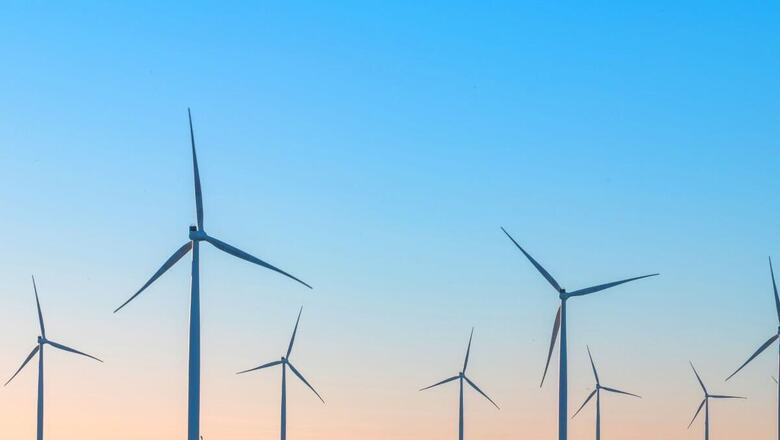
views
The Global Wind Energy Council (GWEC) and India Off-shore Wind Working Group have hailed the Viability Gap Funding recently announced by the government to support the offshore wind energy projects in India. In a latest statement, the member-based organisations representing over 1,500 companies stated that the government support has come as a much-needed boost for the emerging industry.
In its first Cabinet meeting post the election results, the NDA government had approved a total outlay of Rs 7,453 crore for installation and commissioning of 1 GW of offshore wind energy projects — 500 MW each off the coast of Gujarat and Tamil Nadu. It also included Rs 600 crore for upgradation of two ports to meet logistics requirements for offshore wind energy projects.
“This would support the establishment of the necessary offshore ecosystem and lay a strong foundation for success in the 37 GW seabed lease tender trajectory aimed at harnessing the offshore wind potential in the country,” said Bhupinder Singh Bhalla, Secretary, Ministry of New and Renewable Energy.
Despite a 7500-km-long coastline, India is yet to establish an offshore wind project. GWEC — a global member-based organisation representing wind power companies — also met with ministry officials in 2022 to press for financial support mechanisms for the offshore industry.
“This decision sends an important signal about India’s commitment to progress offshore wind at scale. GWEC’s 2024 Offshore Wind Report shows that offshore wind can accelerate just transition in the energy sector, playing an important role in sparking new jobs and investments in the sector. This will help build confidence that will enable offshore wind to graduate from the status of an emerging technology in India,” said Rebecca Williams, Chief Strategy Officer — Offshore Wind, GWEC.
According to its Global Offshore Wind Report 2024, at least 3 per cent of Asia-Pacific (APAC)’s offshore wind capacity between 2024-2033 is estimated to be rooted in India, which is also expected to gradually emerge as the ground for offshore wind manufacturing.
At COP 26, India had also committed to adding 500 GW of non-fossil fuel capacity by 2030 and meet 50 per cent of its energy requirements through renewable energy.
“With offshore wind, the wind industry has a tremendous opportunity to help India’s Nationally Determined Contributions (NDCs), while also building a robust value chain through investments, policy measures, and partnerships that increase jobs and environmental benefits,” said Girish Tanti, GWEC India Chair, and Vice Chairman of Suzlon, terming it as a ‘milestone moment’ for the sector.
As per the National Institute of Wind Energy (NIWE), India has over 70 GW of technical potential for offshore wind off the coasts of Tamil Nadu and Gujarat. India’s “National Offshore Wind Energy Policy – 2015” provided the legal framework and the right impetus for the development of offshore wind.




















Comments
0 comment